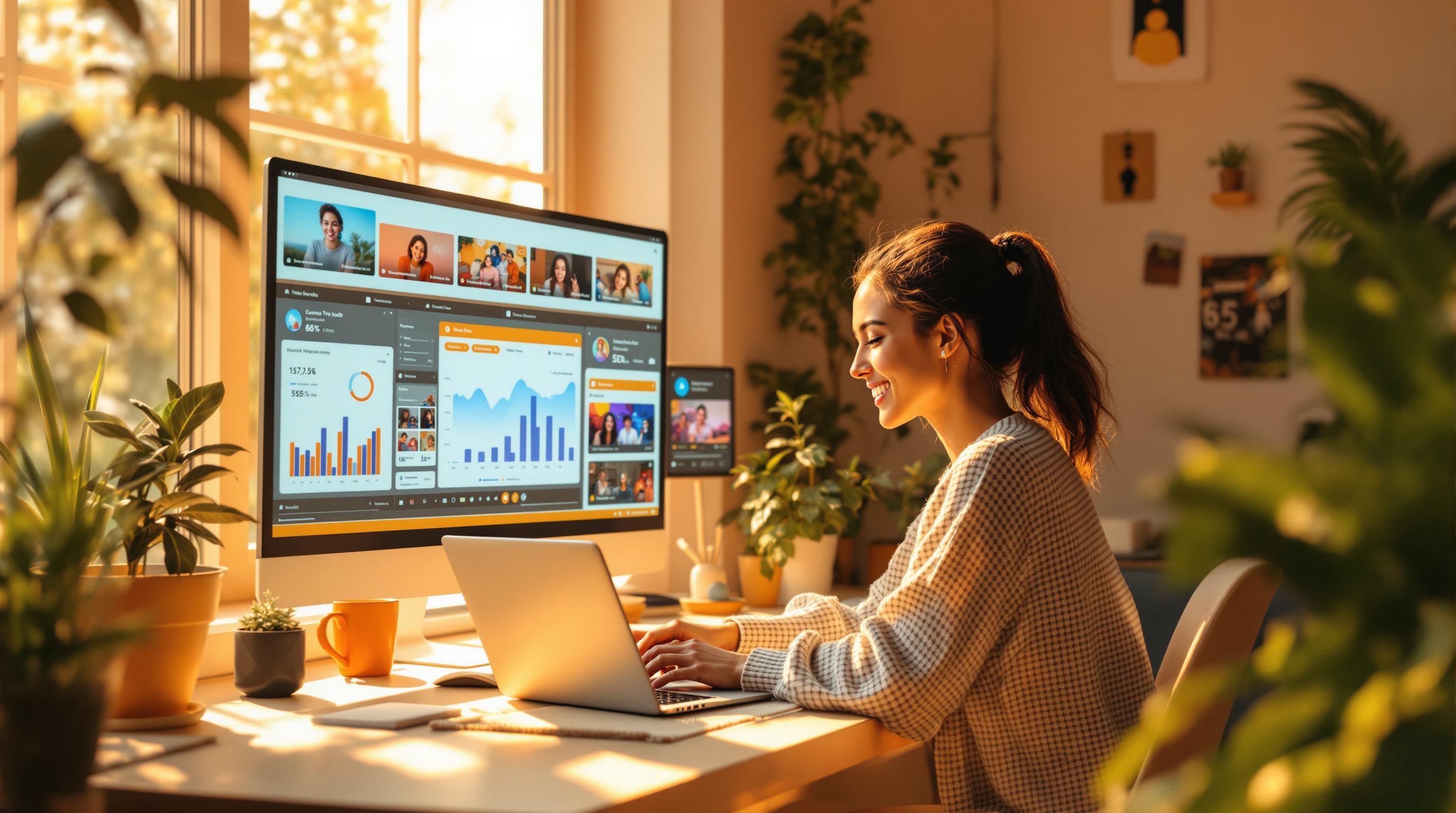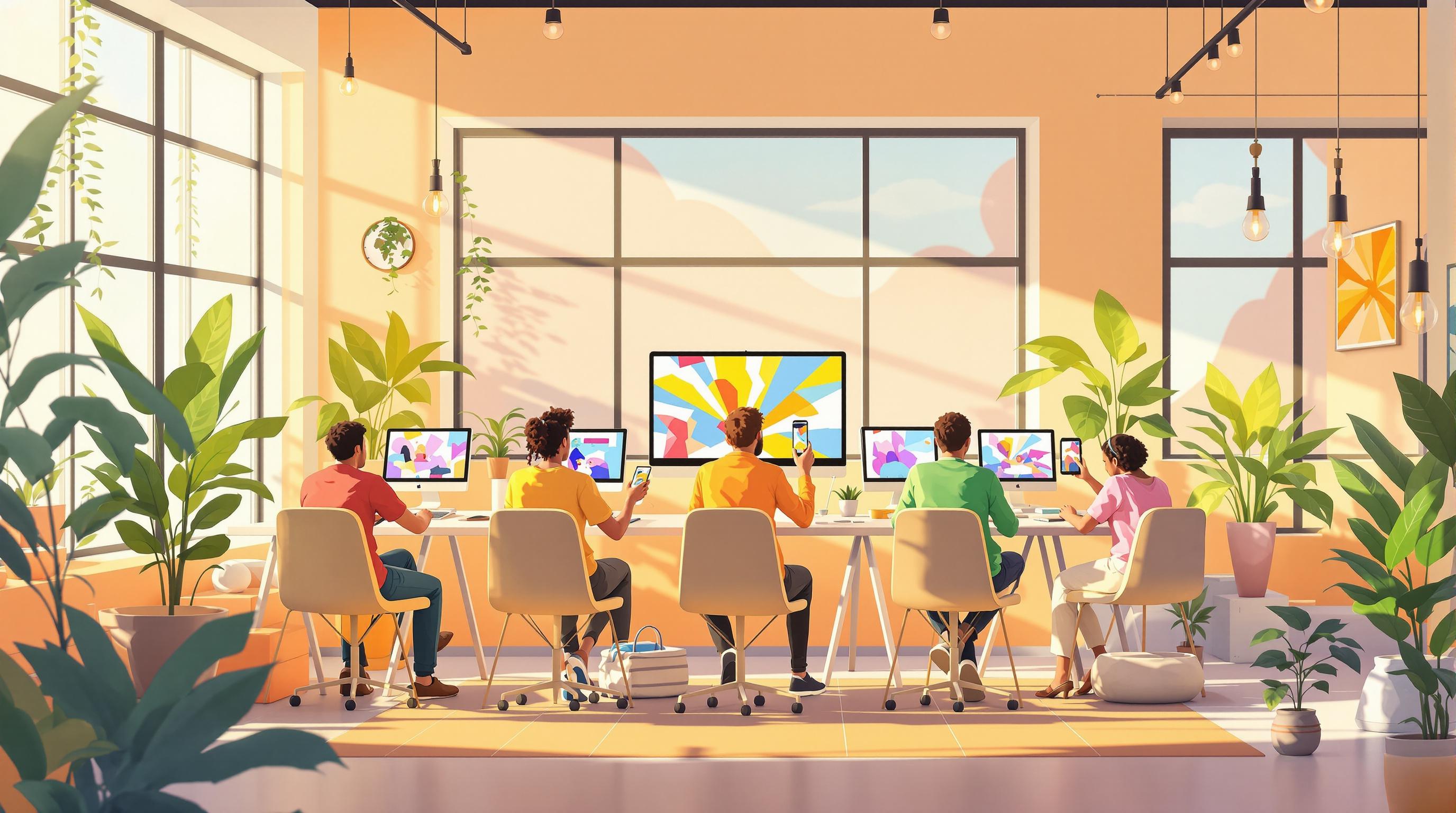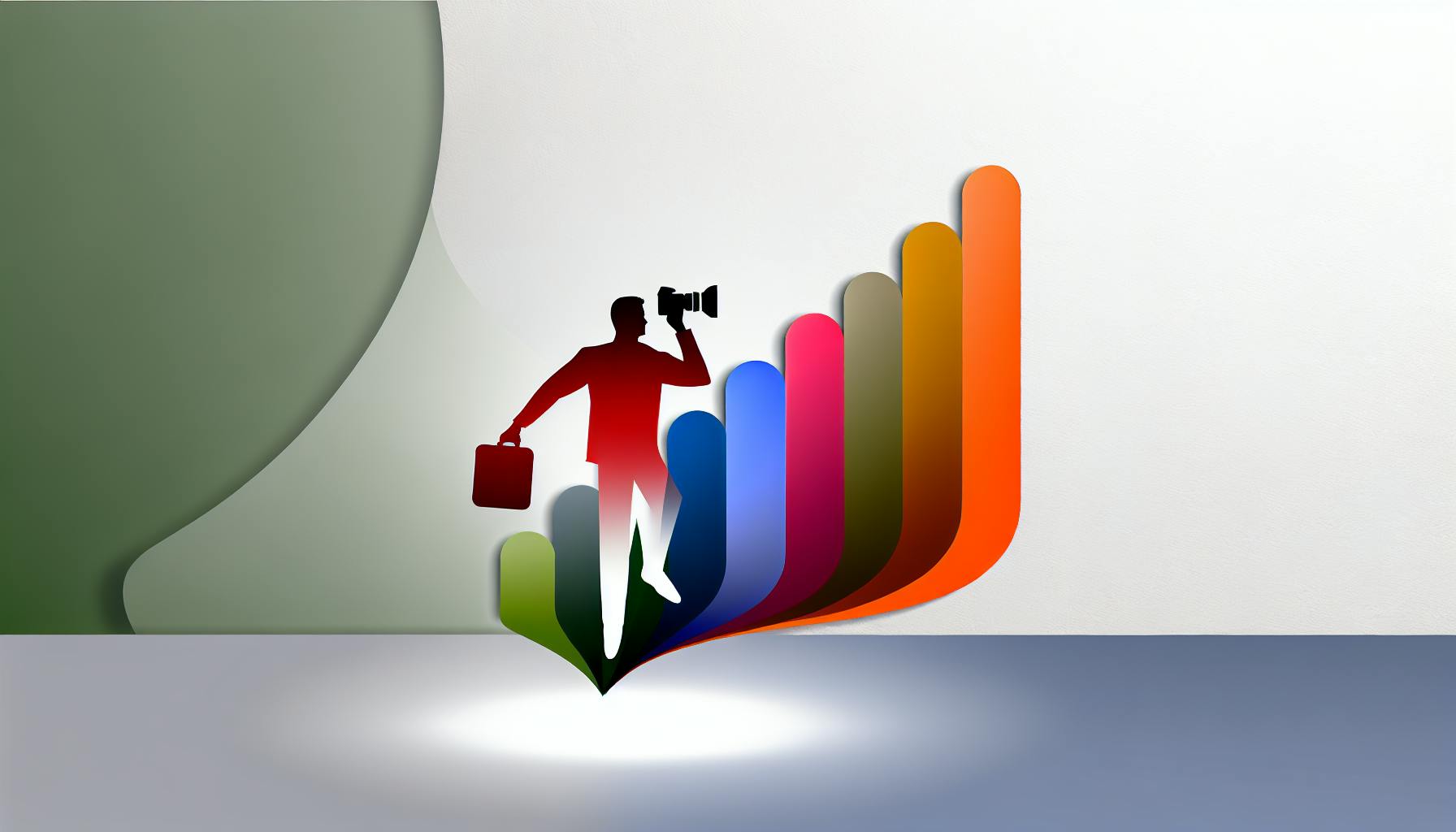While many discuss the negative impacts of social media on mental health, it's crucial to highlight its positive effects. Social media offers connectivity, support, self-expression, and a platform for creativity, which can significantly contribute to our mental well-being. This article delves into how social media can be a force for good, exploring its role in fostering connections, offering support, and allowing for personal expression. Here's a quick overview:
- Connectivity: Social media connects us with friends, family, and communities, making us feel less isolated.
- Support and Empowerment: It provides a space to discuss mental health openly, offering support and resources.
- Self-Expression and Creativity: Social media platforms are venues for sharing our passions and creativity, boosting our self-esteem.
Understanding how to engage positively on social media can mitigate its risks and amplify its benefits for our mental health.
A Mixed Picture
Research shows that social media can make us feel connected and supported. Sites like Facebook can help us keep in touch with friends and family, find people who understand what we're going through, and make us feel less alone. Sharing our wins on Instagram or TikTok can make us feel good about ourselves, too.
But, there's also a downside. Comparing ourselves to others on these platforms can make us feel worse about our lives. Spending too much time on social media is linked to feeling anxious, sad, and having trouble sleeping. Being bullied online can hurt our mental health as well.
So, is social media good or bad? It's not that simple. How we feel about social media depends a lot on how we use it.
It's All About Context
The way we use social media really matters. Talking and joining groups is usually better for us than just looking at posts. The kind of stuff we look at matters, too. Following people who inspire us can make us happier, but following gossip pages might do the opposite. Different platforms have different effects as well. For example, YouTube might be better for our creativity than Instagram.
In short, social media is like real life. Being active in positive groups usually makes us feel better. But, just looking at stuff that makes us feel bad or comparing ourselves to others can be harmful. Social media itself isn't good or bad; it's about how we choose to use it.
Individual Differences Play a Key Role
Everyone is different, and so is how we're affected by social media. Some people might get addicted or feel anxious because of it. And if someone is already dealing with mental health issues, social media might make things worse.
But for some groups, like LGBTQ+ youth or people who live far from others, social media is really important. It gives them a way to find support and connection that they might not have otherwise.
In the end, there's no clear answer on whether social media is good or bad for mental health. It depends on the person using it, how they're using it, and what they're going through. We still need more research to understand this better.
The Positive Aspects of Social Media
Connectivity
Social media lets us connect with others who share our interests or experiences, making us feel like we're part of a group. This can make us feel less alone, especially for those who don't have a lot of friends nearby. It's also great for keeping in touch with family and friends who live far away, helping us feel close even when we're not.
These connections can make us feel better when we're down, anxious, or dealing with mental health issues. Being part of online communities can give us a sense of belonging and support.
Support and Empowerment
Social media also offers a place to talk about tough topics like mental health without feeling judged. People can share their stories and find others who understand what they're going through. There are also lots of groups and pages where people can get advice and support for different challenges.
Online campaigns and groups can help spread the word about mental health, making it easier for people to talk about their problems. And, if someone needs help quickly, social media can connect them with the right resources or support.
For those who can't afford therapy, social media can be a helpful tool to learn more about their mental health and find free support from others.
Self-Expression and Creativity
Social media is a place where we can show the world who we are and what we like to do. Sharing our hobbies, thoughts, and creations can make us feel good about ourselves. When people like or comment on our posts, it can boost our confidence.
There are groups for just about everything, so no matter what you're into, you can find others who like it too. This lets us be ourselves without worrying about fitting in with everyone else.
Sharing our work and getting positive feedback can make us happier and more motivated. It's a way to express ourselves and connect with people who get us.
Comparative Analysis
Pros and Cons of Social Media on Mental Health
| Aspect | Positive Impact | Negative Impact |
|---|---|---|
| Connectivity | Helps people find and support each other | Can make people feel lonely or left out |
| Self-expression | Lets people share their creativity and thoughts | Can lead to feeling bad about oneself by comparing |
| Support groups | Gives access to help and advice | Might show harmful stuff |
Social media, like TapeReal, can be both good and bad for how we feel mentally.
On the good side, social media helps us connect with others, share our creativity, and find groups that offer support. For example, TapeReal lets people find others with similar interests, which can make them feel less alone. It also gives people a way to share their creativity through videos.
But, there are downsides too. Seeing others' lives can make us feel worse about our own. Spending too much time just looking at posts can make us feel lonely.
Really, whether social media is good or bad for us depends on how we use it. It's important to keep a balance and set limits for ourselves.
Analysis of TapeReal's Role
TapeReal has features that can make us feel better:
Building Communities
- Groups based on topics help people find others who share their interests
- Hashtags make it easier to find these groups
- Messaging lets people make friends
Sharing Who You Are
- You can upload videos in your own style
- You can make your profile show what you're about
- There are ways to earn money for your work
Getting Help
- Rules against mean behavior help keep things friendly
- Checking who's real builds trust
- Plans to offer help for those feeling down
TapeReal also cares about privacy and lets users control their online life, which is good for our mental health.
But, it's also looking at how to deal with the bad parts, like feeling worse when we compare ourselves to others or using it too much. They're thinking about ways to help, like reminders to take breaks or showing where to get help.
By keeping an eye on both the good and bad, TapeReal wants to make sure it's a place that helps us feel good.
Methodologies for Positive Engagement
How to use social media in a way that's good for your mental health, including being mindful, controlling your usage, and making real connections.
Using social media can actually be good for your mental health if you do it the right way. Here are some tips based on what research has found:
Practice Self-Awareness and Self-Regulation
- Pay attention to how you feel when you're on social media. If you start feeling bad, it might be time to change how you use it.
- Try not to spend too much time on it. Make sure to take breaks and have some time away from screens.
- Make your feed a happy place by only following accounts that make you feel good. If someone's posts make you feel bad about yourself, it's okay to stop following them.
Foster Meaningful Connections
- Really talk and get involved in groups that make you feel positive.
- Keep in touch with your close friends and family by messaging them directly.
- Help and encourage others by sharing advice or something that makes you smile.
Consume and Create Positive Content
- Follow accounts that make you happy, teach you something, or just make you laugh.
- Spend less time on parts of social media where you end up comparing yourself to others.
- Share things you're into or thoughts you have. It's a great way to express yourself.
- When you see something you like, let the person know with a like or a kind comment.
The way we use social media can either make us feel better or worse. By following these tips like not overdoing it, making real friends, and looking at happy stuff, social media can actually help improve our mood.
sbb-itb-bc761f5
TapeReal's Role in Promoting Positive Mental Health
TapeReal is all about making a place online where people who create stuff can feel good and supported. Here's how TapeReal works to do just that:
Building Supportive Communities
-
It's got spaces based on topics where creators can meet others who like the same things. This helps them find friends, support, and feel part of a group.
-
Using popular hashtags, creators can jump into big conversations, share their thoughts, and make the community richer.
-
With direct messages, creators can chat more personally. This helps friendships grow and lets creators help each other out.
Fostering Self-Expression
-
Creators can set up their profiles and posts however they like. Being true to yourself like this is good for feeling happy.
-
There are ways for creators to make money, like special memberships. This can ease stress and make creators feel valued.
-
The platform is open to everyone, no matter their background. This helps everyone feel welcome and can reduce feelings of being left out.
Promoting Healthy Social Media Use
- There are rules and checks to keep the place safe and friendly. This helps stop bullying, which can hurt how we feel.
- TapeReal suggests taking breaks and gives tips for not spending too much time online. This helps prevent feeling addicted or lonely.
- If creators are struggling with things like anxiety or feeling alone, TapeReal has resources and help available. This offers direct support to those who need it.
By helping creators make real friends, share freely, and use social media in a healthy way, TapeReal is working to show that social media can be good for our mental health, while also being careful about the usual downsides.
Conclusion
Social media can be both good and bad for how we feel inside. But if we use it wisely, it can help us make friends, share our true selves, deal with tough times better, and make us happier and healthier.
The trick is to know how different apps and activities make us feel, not spend too much time on them, and choose to follow things that make us feel positive. By making real friends, looking at things that lift us up, and being ourselves online, social media can help us feel more confident, supported, and able to bounce back from hard times.
Places like TapeReal show how online groups that focus on what we like, not just how we look, can make us feel accepted, safe, and able to share freely. They pay attention to keeping the space safe, letting users control what they see, and giving help when needed, which makes for a healthier online world.
Even though there are still some risks with using the internet, things are getting better. Social media is starting to be seen as a way to add to our lives, not take over. If we're smart about how we use it, we're on the path to making social media a place that helps us feel better, not worse.
Related Questions
What are the positive impacts of social media on mental health?
Social media helps us connect with people who like the same things we do, making us feel part of a community. It's good for our mental health because it:
- Makes us feel supported and less alone
- Keeps us in touch with friends and family far away
- Gives us information and help for mental health issues
- Lets us show who we are and explore our identity
What are the positive effects of social media?
Some good things about social media include:
- Staying connected with friends and family
- Learning about different views and ideas
- Getting news and info quickly
- Sharing what we love and being creative
- Helping businesses and people get noticed
- Finding others who share our interests
What are the 5 benefits of social media?
The top 5 benefits are:
-
Talking and connecting - It's easy to chat and stay in touch, no matter where we are.
-
Getting info fast - We can quickly find out what's happening in the world.
-
Helping businesses - Companies can talk to customers and spread the word about what they offer.
-
Fun and entertainment - There's lots of stuff to watch and do.
-
Sharing our thoughts and hobbies - It's a great place to show off what we're into.
What is the solution to social media affecting mental health?
To deal with social media stress, we can:
- Limit how much time we spend on it
- Take breaks from our screens
- Turn off notifications sometimes
- Stop following accounts that make us feel bad
- Choose to follow positive and uplifting accounts
- Join groups that help with our problems
- Talk to someone if social media makes us really stressed or anxious
Being aware of how we feel when using social media, controlling how much we use it, and making real-life friends can help us feel better.



